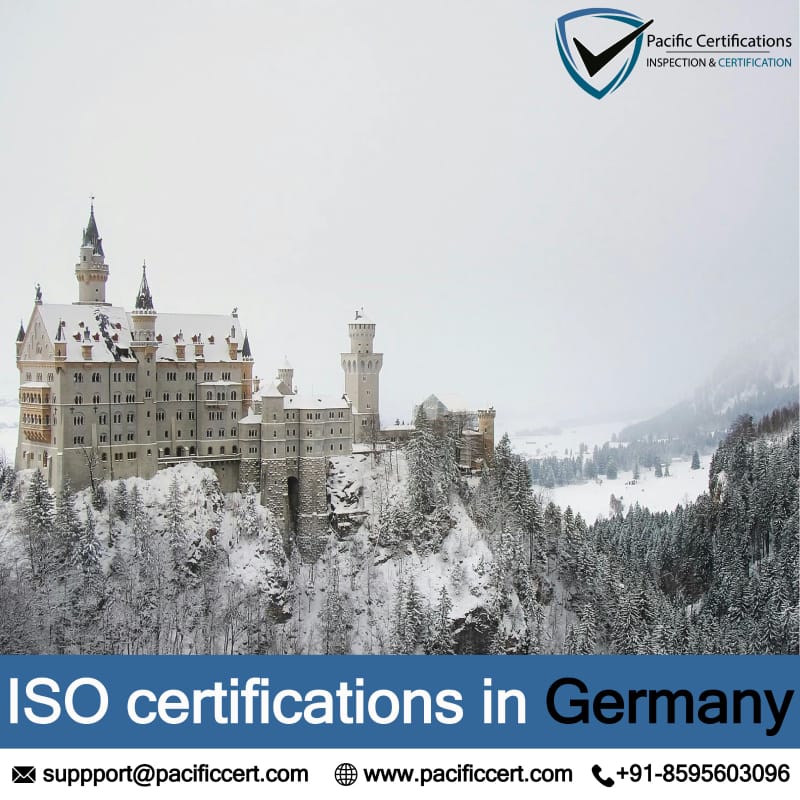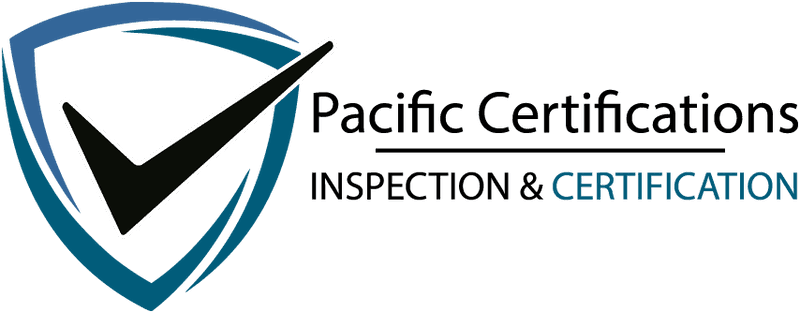ISO Certifications in Germany, Popular Standards, Requirements and Benefits

Germany, known for its robust industrial base and high-quality manufacturing, has a significant presence in the global market for ISO certifications. As businesses strive to enhance their operational efficiency, quality, and environmental management, ISO certifications have become integral to demonstrating compliance with international standards
Popular ISO standards in Germany
ISO 9001:2015 - Quality Management Systems: Widely adopted across various industries to enhance product quality and customer satisfaction
ISO 14001:2015 - Environmental Management Systems: Emphasized in manufacturing and service sectors to ensure sustainable environmental practices
ISO 45001:2018 - Occupational Health and Safety Management Systems: Critical in industries such as construction, manufacturing, and logistics for ensuring workplace safety
ISO 27001:2022 - Information Security Management Systems: Increasingly important in the IT sector and for any business handling sensitive data to ensure data security and compliance
ISO 50001:2018 - Energy Management Systems: Adopted by energy-intensive industries to improve energy efficiency and reduce carbon footprints
Click here to find out more applicable standards to your industry
Market Trends and Research
Growing Demand for ISO Certifications
In 2024, the demand for ISO certifications in Germany continues to rise, driven by several factors:
Regulatory Compliance: With stringent regulations in place, businesses seek ISO certifications to comply with national and international laws.
Competitive Advantage: ISO-certified companies gain a competitive edge by showcasing their commitment to quality and best practices.
Sustainability Focus: There is a growing emphasis on sustainability, pushing companies to adopt ISO 14001 and ISO 50001 standards.
Cybersecurity Concerns: The rise in cyber threats has heightened the importance of ISO 27001 certification for information security management.
Digital Transformation and ISO Standards
The digital transformation wave sweeping across industries is influencing ISO certification trends. Companies are integrating digital tools and technologies to streamline compliance processes, monitor performance, and maintain certification standards more efficiently
The global market for ISO certifications is expanding, with notable trends in 2024:
- Integration of Multiple Standards: Businesses are increasingly integrating multiple ISO standards (e.g., ISO 9001, ISO 14001, ISO 45001) into a unified management system to streamline processes.
- Focus on ESG (Environmental, Social, and Governance): ISO standards related to environmental and social responsibility are gaining traction as companies prioritize ESG criteria.
- Technological Advancements: The adoption of AI and IoT in compliance management is enhancing the efficiency of maintaining ISO certifications.
How we at Pacific Certifications can help
At Pacific Certifications, we specialize in providing audit and certification services across various ISO standards. Our services ensure that your organization meets the rigorous requirements of international standards without delving into consultancy activities such as training, internal audits, or documentation preparation.
Our Certification Process
Pre-Audit Assessment: Evaluate your organization's current compliance status against the desired ISO standard
Certification Audit: Conduct a thorough audit to assess adherence to the ISO standard requirements
Certification Issuance: Upon successful audit completion, issue the ISO certification, demonstrating your compliance and commitment to best practices.
Surveillance Audits: Regular audits to ensure continuous compliance and improvement.
Germany's commitment to maintaining high standards in quality, environmental management, and safety is reflected in its robust adoption of ISO certifications. At Pacific Certifications, we are dedicated to supporting German businesses through our expert audit and certification services, ensuring they achieve and maintain compliance with international standards
Requirements of ISO Certifications in Germany
The requirements for obtaining ISO certifications in Germany revolve around the compliance with specific standards and the implementation of management systems according to the ISO’s guidelines. Here’s a detailed look at the general requirements for obtaining ISO certifications in Germany:
General Requirements for ISO Certifications
Establishing a Management System: Develop and implement a management system that aligns with the ISO standard’s requirements. This includes creating documented procedures, policies, and objectives that are specific to the standard (e.g., Quality, Environmental, Information Security).
Leadership Commitment: Top management must demonstrate leadership and commitment to the management system. They should ensure that resources are available, roles and responsibilities are assigned, and the management system is integrated into the business processes.
Risk and Opportunity Management: Identify and assess risks and opportunities related to the objectives of the management system. Implement plans to address these risks and leverage opportunities to improve the system’s effectiveness.
Performance Evaluation: Establish processes for monitoring, measurement, analysis, and evaluation of the management system to ensure its effectiveness. This includes setting up internal audits and management reviews.
Continual Improvement: The organization must continually improve the effectiveness of its management system through actions to enhance performance and address non-conformities.
Specific Requirements for Common ISO Standards
ISO 9001 (Quality Management):
- Focus on customer satisfaction, process approach, and continual improvement
- Implement quality management principles such as strong customer focus, the involvement of high-level management, and a process approach to management
ISO 14001 (Environmental Management):
- Establish an environmental policy, ensure compliance with environmental laws and regulations, and set objectives to improve environmental performance
ISO 45001 (Occupational Health and Safety):
- Create procedures to manage OH&S risks, legal compliance, emergency preparedness, and injury and ill-health prevention
ISO 27001 (Information Security Management):
- Identify information security risks and vulnerabilities, implement information security controls, and ensure continuous monitoring and improvement of the ISMS
ISO Certification Process in Germany
Preparation and Documentation: Prepare by documenting processes, conducting employee training, and ensuring the management system is fully operational
External Audit: An external audit by a certification body, which involves two stages:
- Stage 1: Documentation review and preliminary assessment to check readiness
- Stage 2: In-depth audit to verify that practices comply with the ISO standards and the organization’s own documentation
Certification and Surveillance: After successful completion of the audit, the organization receives certification. Surveillance audits are conducted periodically (usually annually) to ensure ongoing compliance
Recertification: Every three years, a more comprehensive audit is conducted for recertification to maintain the ISO certificate's validity
Benefits of ISO Certifications in Germany
ISO certifications offer a wide array of benefits to organizations in Germany, impacting various aspects of business operations from enhancing efficiency to boosting market credibility
Here’s an overview of the key benefits that organizations can gain from achieving ISO certifications:
Improved Product and Service Quality
ISO 9001, the standard for quality management systems, helps ensure consistent quality in products and services, leading to higher customer satisfaction. This is achieved through streamlined processes and a focus on continuous improvement and customer feedback.
Enhanced Compliance with Regulations
Various ISO standards require organizations to comply with relevant laws and regulations. For instance, ISO 14001 aids in meeting environmental regulatory criteria, while ISO 27001 supports compliance with data protection laws such as the GDPR.
Increased Market Access
ISO certifications are often a prerequisite for doing business in certain markets or industries. They can serve as a differentiator in competitive sectors and are sometimes a requirement in public and private procurement processes, helping German companies expand both domestically and internationally.
Improved Efficiency and Cost Management
By standardizing processes and focusing on quality management, companies can reduce costs through improved resource management, waste reduction, and more efficient operational procedures. This is particularly evident with standards like ISO 9001 for quality management and ISO 14001 for environmental management.
Risk Management
ISO standards such as ISO 31000, which provides guidelines for risk management, help organizations identify, quantify, and mitigate risks. Implementing an ISO standard helps in building a systematic approach to managing uncertainty in business processes and technology.
Enhanced Staff Engagement and Development
Implementing ISO standards requires training and engagement of staff at all levels, leading to a more motivated workforce. Standards like ISO 45001 that focus on occupational health and safety can particularly enhance employee morale and reduce workplace accidents.
Sustainability and Environmental Impact
ISO 14001 helps organizations develop a systematic approach to environmental management. This can result in significant reductions in waste and energy use, contributing to more sustainable operations and potentially reducing environmental liabilities.
Improved Information Security
For organizations that handle sensitive data, ISO 27001 provides a framework to help ensure the security of information assets. This is increasingly important in Germany, given the stringent requirements for data protection and security.
Stronger Stakeholder Confidence and Relationships
Certification to an internationally recognized standard can enhance trust among stakeholders, including customers, business partners, and regulators. This can lead to improved relationships and a stronger reputation in the market.
Continuous Improvement
ISO standards are based on a philosophy of continual improvement, requiring organizations to regularly review and refine their systems. This leads to improvements over time, driving innovation and better performance.
We at Pacific Certifications ensure that the certification process is smooth and the benefits of certification are maximized
Which industries need ISO Certifications in Germany
In Germany, ISO certifications are important across a wide range of industries, serving as a mark of quality, safety, and efficiency
Here’s an overview of key industries particularly relevant:
Manufacturing: ISO 9001 (Quality Management Systems) is crucial for ensuring consistent product quality and meeting customer expectations. ISO 14001 (Environmental Management Systems) and ISO 45001 (Occupational Health and Safety) are also important for managing environmental impact and ensuring worker safety.
Information Technology: ISO 27001 (Information Security Management) is essential for IT companies to manage the security of information assets. This certification is critical given the stringent data protection laws in Germany, such as the GDPR.
Healthcare: ISO certifications like ISO 13485 (Medical Devices - Quality Management Systems) are mandatory for manufacturers of medical devices. ISO 9001 can also support healthcare providers in enhancing patient care quality.
Automotive: The German automotive industry often requires IATF 16949, a global standard for automotive quality management systems that is based on ISO 9001 and specific requirements from the automotive sector.
Construction and Engineering: ISO 9001 helps construction firms standardize their operations and improve efficiency. ISO 14001 and ISO 45001 are also important for managing environmental impact and safety in potentially hazardous work environments.
Energy and Utilities: ISO 50001 (Energy Management Systems) is relevant for energy companies looking to improve energy efficiency and reduce environmental impact. ISO 14001 is also commonly implemented in this sector.
Chemical Industry: Given the environmental and safety concerns associated with the chemical industry, certifications like ISO 14001, ISO 45001, and ISO 9001 are crucial for managing risks and maintaining quality control.
Food and Beverage: ISO 22000 (Food Safety Management Systems) is key for ensuring the safety and quality of food products. This standard helps companies comply with food safety laws and regulations.
Telecommunications: Like the IT industry, telecommunications firms +benefit from ISO 27001 to secure sensitive data and communications infrastructure.
Logistics and Transportation: ISO 9001 and ISO 14001 can help logistics companies enhance service quality and environmental management, important for a sector involved in the global movement of goods.
For businesses in Germany, achieving and maintaining these certifications can be key to securing business contracts and expanding market access
Pacific Certifications is accredited by ABIS, in case you need support with ISO certification for your business in Germany, please contact us at [email protected] or +91-8595603096
Read More at: Blogs by Pacific Certifications

